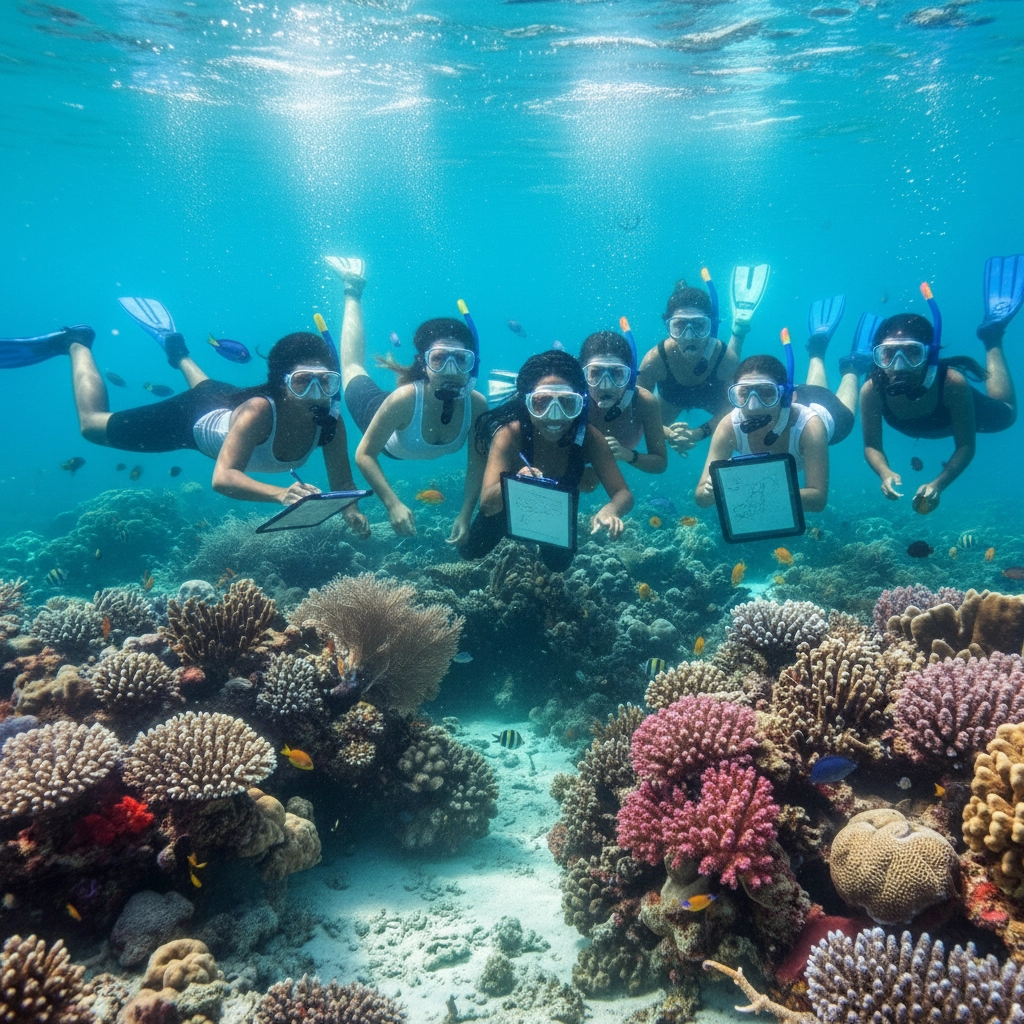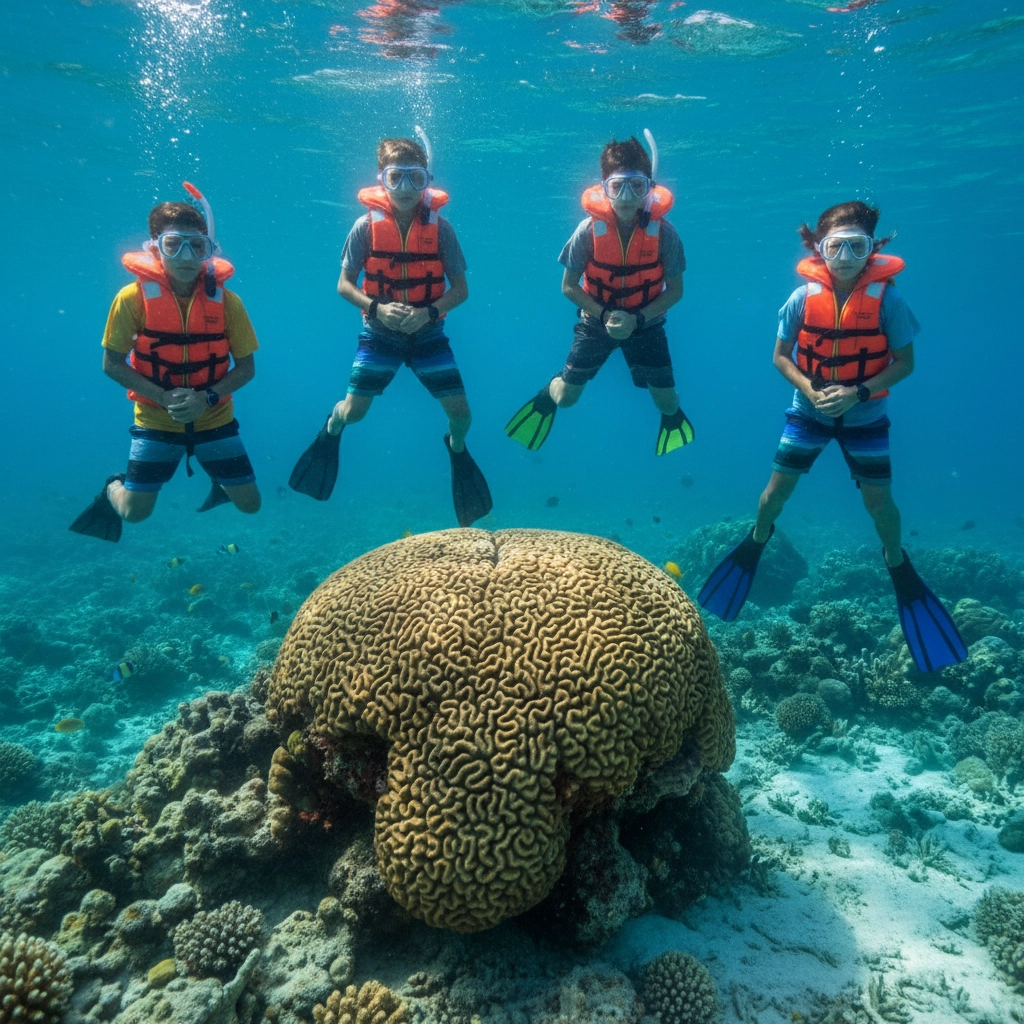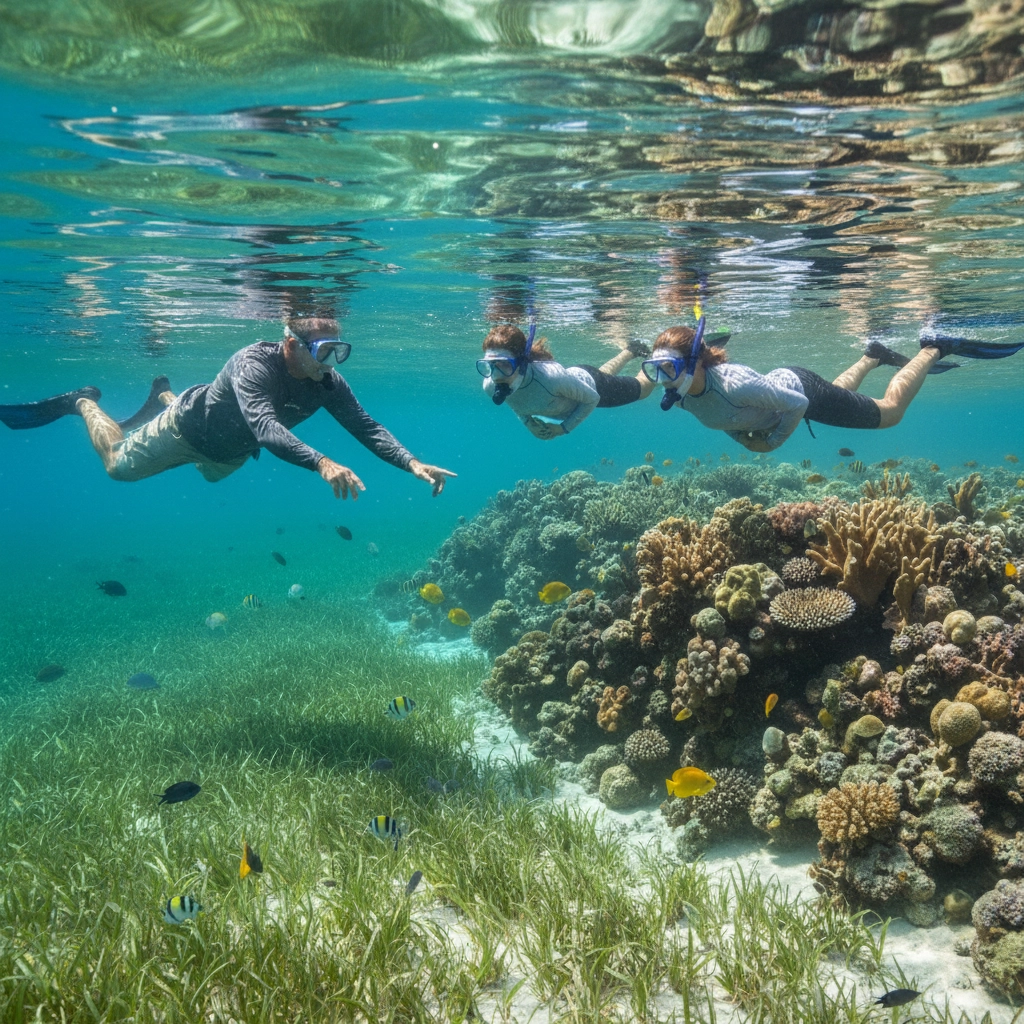Florida Keys field trip
- Caleb Mullenix
- Oct 29, 2025
- 5 min read
Planning a Florida Keys field trip offers educators an unparalleled opportunity to immerse students in hands-on marine science education within one of North America's most extraordinary ecosystems. The Florida Keys contain the only living coral barrier reef system in the continental United States, making this destination essential for comprehensive marine biology and environmental science curriculum delivery.
Understanding the Educational Value of Florida Keys Field Trips
The Florida Keys present a unique convergence of diverse marine ecosystems including coral reefs, mangrove forests, seagrass beds, and open ocean environments. This ecological diversity provides students with direct access to living laboratories where theoretical classroom concepts transform into tangible, observable phenomena. Students can witness firsthand the interconnected relationships between marine organisms, understand the impacts of climate change on coral reef systems, and participate in actual conservation efforts.
Research demonstrates that experiential learning in natural environments significantly enhances student comprehension of complex ecological concepts. The Florida Keys ecosystem allows students to observe biodiversity, study adaptation mechanisms, and understand the delicate balance required for marine ecosystem sustainability.

Comprehensive Field Trip Provider Options
Pigeon Key Marine Science Center
Pigeon Key operates one of the most established marine science field trip programs, serving over 30,000 participants from more than 1,000 schools across two decades. Located on a private five-acre island, the center provides all-inclusive 3-day, 2-night marine science experiences starting at $540 per person, with teachers staying free.
The program's signature component includes snorkel expeditions aboard a 35-foot catamaran to Sombrero Reef, recognized as the third-largest barrier coral reef system globally. This hands-on experience allows students to conduct underwater observations, collect data on coral health, and document marine species diversity. The center accommodates only one group at a time, ensuring individualized attention and customized educational programming.
Mote Marine Laboratory & Aquarium Programs
Mote Marine Laboratory offers structured field trip options designed for different grade levels and educational objectives:
Mangrove Kayaking Expeditions (5 hours, $40 per participant, grades 5-8): Students navigate through mangrove ecosystems while learning about these critical nursery habitats. The program emphasizes the ecological importance of mangroves as storm buffers, carbon sequestration systems, and breeding grounds for numerous marine species.
Coral and Fish Identification Workshops (full day, $125 per participant, grades 6-12): Combines classroom instruction with coral reef snorkeling experiences. Students develop species identification skills while learning about reef ecology, symbiotic relationships, and conservation challenges.
Coral Health and Disease Assessment (full day, $125 per participant, grades 8-12): Advanced program focusing on coral pathology, bleaching events, and restoration techniques. Students participate in actual research protocols used by marine biologists.
Coral Restoration Behind-the-Scenes Tours (4 hours, $40 per participant, grades 6-12): Students observe coral propagation facilities, learn about restoration methodologies, and understand the scientific approaches to reef rehabilitation.

Essential Learning Activities and Experiences
Snorkeling and Underwater Observation
Snorkeling expeditions provide students with direct access to coral reef ecosystems, allowing observation of marine life in natural habitats. Students learn proper snorkeling techniques, underwater safety protocols, and scientific observation methods. These experiences enable students to document species diversity, observe predator-prey relationships, and witness symbiotic interactions between coral polyps and algae.
Mangrove Ecosystem Exploration
Kayaking through mangrove forests offers students opportunities to observe unique adaptations of plants and animals to saltwater environments. Students can observe manatees, nurse sharks, and various bird species while learning about the critical ecological functions of mangrove systems including coastal protection, water filtration, and carbon storage.
Marine Conservation Projects
Many programs incorporate hands-on conservation activities including coral restoration projects, marine debris removal, and turtle rehabilitation center visits. Students participate in actual conservation efforts while learning about human impacts on marine ecosystems and the scientific approaches to environmental restoration.
Research and Data Collection
Students engage in authentic scientific research activities including water quality testing, species population surveys, and coral health assessments. These activities teach students proper scientific methodology while contributing to ongoing research efforts.

Curriculum Integration and Academic Benefits
Florida Keys field trips effectively integrate multiple academic disciplines including marine biology, environmental science, chemistry, physics, and geography. Students apply mathematical concepts through data collection and analysis, develop scientific writing skills through observation logs, and enhance critical thinking through ecosystem analysis.
The interdisciplinary nature of marine science education allows teachers to address multiple curriculum standards simultaneously. Students develop understanding of scientific methods, ecosystem interactions, conservation biology, and environmental stewardship through direct experience rather than textbook learning alone.
Grade-Level Considerations and Program Selection
Programs accommodate students from 5th grade through postgraduate levels, with content complexity adjusted appropriately. Elementary students focus on basic ecosystem concepts and species identification, while high school students engage in advanced topics including ocean chemistry, climate change impacts, and conservation strategies.
Middle school programs emphasize hands-on exploration and discovery learning, while high school offerings incorporate more sophisticated scientific concepts and research methodologies. Advanced programs may include opportunities for students to contribute to ongoing scientific research projects.
Practical Planning Considerations
Trip Duration Options
Field trip durations range from single-day excursions (4-5 hours) to comprehensive multi-day immersive experiences (3-5 days). Single-day programs work well for schools with limited budgets or time constraints, while multi-day programs provide deeper learning opportunities and more extensive hands-on experiences.
Safety and Supervision Requirements
Marine environment field trips require specialized safety protocols including swimming ability assessments, proper supervision ratios, and emergency response procedures. All students must demonstrate basic swimming competency, and programs typically maintain low student-to-instructor ratios for optimal safety and learning.
Equipment and Preparation
Most providers supply necessary equipment including snorkeling gear, life jackets, and educational materials. Students should bring appropriate clothing, sun protection, and personal items as specified by program providers.

Maximizing Educational Outcomes
Pre-Trip Preparation
Effective preparation includes classroom instruction on marine ecosystems, species identification guides, and discussion of conservation challenges. Students should understand basic snorkeling techniques and safety procedures before arriving at the destination.
Post-Trip Follow-Up
Extend learning through data analysis, research reports, and presentation of findings to school communities. Students can create educational materials about marine conservation or participate in local environmental stewardship projects.
Assessment and Documentation
Document learning through observation journals, scientific drawings, photography, and group reflections. These materials serve as assessment tools while preserving memories of the educational experience.
Experience Florida Keys Marine Science with Appleseed Expeditions
For educators seeking comprehensive, expertly planned Florida Keys field trip experiences, Appleseed Expeditions provides specialized educational travel services designed specifically for student groups. Our experienced team handles all logistical details while ensuring maximum educational value and safety for your students.
Appleseed Expeditions partners with leading marine science education providers to create customized itineraries that align with your curriculum objectives and budget requirements. From single-day snorkeling excursions to multi-day research expeditions, we ensure your students receive transformative educational experiences in the Florida Keys.

Planning a Florida Keys field trip requires careful consideration of educational objectives, student needs, and logistical requirements. The unique marine ecosystems of the Florida Keys provide unmatched opportunities for experiential learning that transforms students into environmental stewards while building deep understanding of marine science concepts. Through proper planning and selection of appropriate programs, educators can provide students with life-changing educational experiences that inspire continued interest in marine conservation and scientific inquiry.
The investment in Florida Keys field trip experiences pays dividends in enhanced student engagement, improved academic performance, and development of environmental awareness that extends far beyond the classroom setting. These immersive educational adventures create lasting memories while building the scientific literacy and conservation mindset essential for addressing future environmental challenges.



Comments